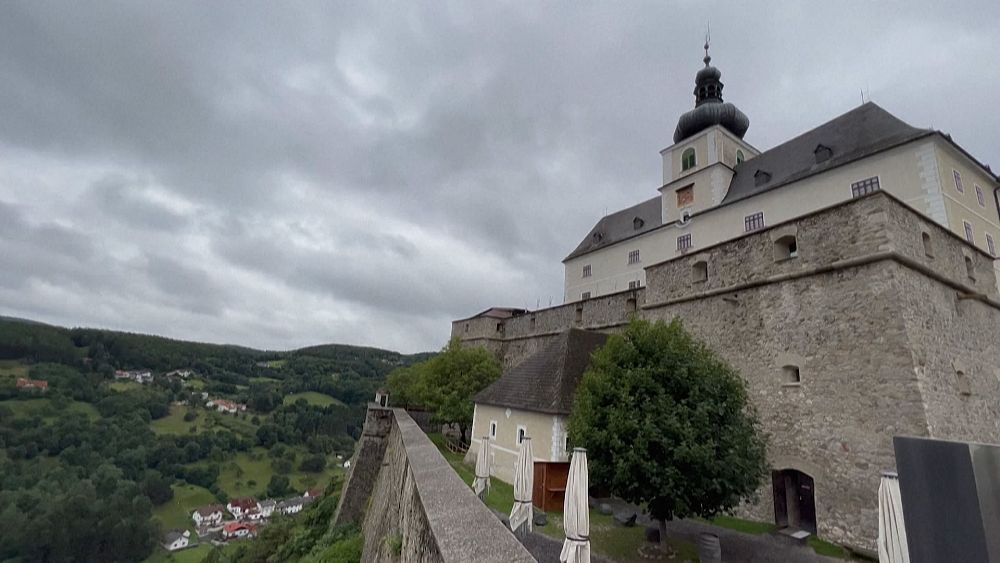Families gather at the castle to discover the story of Vlad Tepes Dracula.
An event named 'Draculade,' immerses children in his legend through costumes and scary stories.
The evening includes a visit to Burg Forchtenstein’s Ancestors' Gallery, where a 17th-century oil painting of Vlad Tepes is on display.
Take part in a torch-lit tour around the castle.
The historical tour allows children to step into the shoes of the infamous figure.
The evening begins with parents helping their children into Dracula costumes, complete with the signature cape. The tour is lit with torches creating an eerie atmosphere reminiscent of the vampire lord's era.
"I want to educate my children so that they experience history in a lively way. That means that they can then remember more when they actually see it,” says Andrea Stupitz, a visitor to the castle. “And I think it's a great occasion to learn the story of Dracula in such a mystical castle in the evening or to listen to it being narrated."
What treasures await in Forchtenstein?
One of the highlights of the event is a visit to Forchtenstein Castle's Ancestors' Gallery. Here a full-length 17th-century portrait of Vlad Tepes (1431 -1476), voivode of Wallachia, nicknamed Dracula, is on display.
This portrait, part of the Esterházy Private Foundation's collection, adds a historical touch to the night.
Who Was Vlad Tepes, the ‘real’ Dracula?
The historical personality of Vlad Tepes Draculea is a ruler of his time who took advantage of moments to implement his ideas of managing a country, defending a country,” Florian Bayer, the collection manager at the Esterhazy Private Foundation, explains.
“Of course, already in the 14th, 15th and then in the 16th century he was exalted as a historical person through a tradition, a written tradition, through paintings, through sketches made by him, especially in Central Europe."
Bram Stoker’s Dracula, published in 1897, grew in popularity throughout the 20th and 21st centuries. Countless films and adaptations have been created over the years.
However, the association between Stoker's Dracula and Vlad Tepes only developed during the communist regime as a marketing strategy to attract tourists to Romania.
In Brasov, Romania, archivist Bogdan Popovici highlights historical records related to Vlad Tepes.
"I did research with a colleague from Brasov some years ago which revealed that until the 60s there was no association between Bram Stoker’s character and Vlad Tepes. This was developed during the communist regime for the Western market to attract tourists."
"Dracula" at Burg Forchtenstein offers a unique opportunity to explore the complex history of Vlad Tepes, separating fact from fiction while immersing participants in a night of eerie fun and historical discovery.


